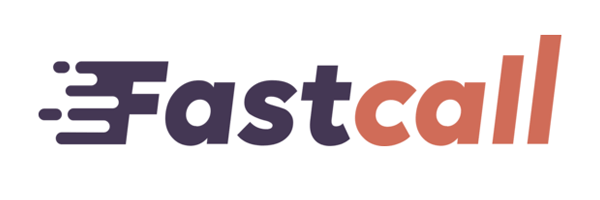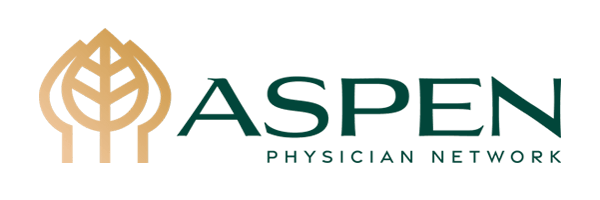How productive do you feel on any given day? This is at the heart of many developer pain points when building and deploying their projects, made more complicated when you have a lot of environments to test in. Salesforce OrgFarm stepped in to streamline the process and make it simpler for Salesforce software engineers to focus on the bigger picture rather than getting bogged down in the repetitive iterative testing process. Follow along as we explore how they did it.
Managing the developer environment
For some engineers, the environment is everything. It’s where they’ll generate and test a product, deploy it, and lead it all the way into the hands of external users. But the more environments, the more complex managing all of them can become. Heroku simplified all that for their team.
OrgFarm has a bunch of things running on Heroku. We have a website on Heroku. We have a database add-on in Heroku. We have Slack bots compute and run on Heroku. We even have an Agentforce agent exchange and an internal agent exchange running on Heroku.
– Shiva Nimmagadda Venkata, Vice President of Software Engineering at Salesforce
Managing application complexity
Before OrgFarm, developers would write and share orgs between teams using simple tools like shared spreadsheets. While this is a rudimentary way of doing things, it can certainly be done—assuming you have a small team of just a few developers. However, going from a team of 10 to organization-wide engineering teams, the scaling issue grows exponentially.
Within Salesforce we have a bunch of software options we can leverage. The easiest and the best way to scale up and run quite a bunch of worker nodes and web nodes is through Heroku. We found Heroku being very, very easy to use and easy to develop and deploy, and to deliver value to our customers.
– Shiva Nimmagadda Venkata, Vice President of Software Engineering at Salesforce
Three simple words for developers — ease of use
Once Heroku was implemented into their workflow, the OrgFarm team was able to scale from 10 developers to 15,000, all within three years. Ease of use stayed at the forefront with how simply the OrgFarm team could suddenly include add-ons into their apps, such as an add-on for Postgres or one for SQL.
Beyond the ease of adding to the platform was the ease of maintenance. OrgFarm developers could allow maintenance to go into autopilot, only needing to switch back into active maintenance mode if they received a notification of something that needed higher levels of attention beyond what the automation could provide.
The complexity of scale
One issue OrgFarm had to deal with was the size of data loads. They were frequently seeing timeouts on the APIs they were using, so looked to Heroku’s Autoscaling feature. Here they could set the minimum node as four and a maximum as 10 whenever the response time was greater than desired.
We were able to easily scale up from one plan to another where earlier we could only support 80 clients max. Now with the upgraded plan, we can support 200 clients. In just a matter of minutes, we’re able to scale it up and cater to the users.
– Pavana Kumar Kothapalli Venkata Naga, Software Engineering LMTS, Salesforce
Leveraging Salesforce integration with Heroku
Being within Salesforce, OrgFarm has been able to utilize multiple tools to great effect. For example, Data Cloud has helped with non-transactional data for analytics purposes, whereas Tableau is used to analyze and do additional reporting on top of that, with Heroku pushing data to Data Cloud via an add-on. This makes integrating analytics into data gathering seamless.
Log Tails also comes into play, finding a use in the debugging process. With how easy it is to get output streams, event data, error messages, and more all logged in and to roll out any new service, Heroku continues to be the go-to assistant for the team. You can spin up the platform immediately, deploy it, and then do some proof-of-concept work with little restriction. This cost-saving measure makes it easier for both manual and automated deployments, with the option to roll back if there are any bugs.
We have new services with auto deployments, it’s seamless. As soon as you check in, it deploys to staging and it goes to production, so we don’t have to manually deploy it. These are things that can create different pipelines for dev, test, staging, everything within one app, making it very easy for developers.
– Pavana Kumar Kothapalli Venkata Naga, Software Engineering LMTS, Salesforce
Zapping bugs faster
As with all development, bugs are an inevitability. When developing in the previous environment you’d have to raise a pull request, wait for the approval, go through different stages of canary testing, stage everything, and then finally it goes to production. Now with Heroku, OrgFarm is able to deploy anytime and vastly shorten the time needed to make changes and fix bugs, going from 2-3 days for a single bug fix to fixes going live in minutes.
Staying secure
One Heroku benefit that teams consistently discuss is the security of the platform. From OrgFarm’s perspective, even the AI portion of Heroku MCP servers—which is designed for secure and isolated execution of diverse applications—provides a trusted and secure way to develop.
The trustees behind OrgFarm prefer 100% reliable data and availability, which Heroku has also provided, plus custom private spaces and public spaces alike. Heroku Private Spaces give developers a means to bring all their applications together in a network-isolated, single tenant environment, while public spaces add resilience. Overall, the level of trust and security spans both network and data security, leading to a fully trusted experience.
We can run our applications through MCP server and make all our APIs available to agents that are running on Agentforce. I can cover more developers, more users, and more form factors. That’s an advantage to me in the future.
I think we have already established a lot of data, trust, and security. I never worried about that. We have been using Heroku for almost three years with various apps, and we haven’t found any issues where Heroku didn’t work as expected from the infrastructure perspective or platform perspective.
– Shiva Nimmagadda Venkata, Vice President of Software Engineering at Salesforce
Adopting Heroku leads to customer trust
Perhaps the biggest takeaway from OrgFarm is that it shows just how reliable Heroku can be to our own developers, our ‘customer zero.’ If internal teams get so much use from the platform and demonstrate continued trust in how reliable it can be, then external customers will feel the positive net effects, even if they don’t know the full story behind the smooth service.
I think one strength of Heroku is that our users don’t even know we use it because our deployment system lets us just be online all the time, even when we make updates. So, for the end user, it’s kind of seamless. They don’t have to worry about it. That’s good.
– Adil Rasiyani, Software Engineer at Salesforce
Launch your next project with Heroku
How the Salesforce OrgFarm team did it
- OrgFarm’s internal Heroku Postgres database runs on Heroku.
- Salesforce Data Cloud helps when using non-traditional data for analytics purposes.
- Tableau provides data analysis and additional reporting, pushing data to Data Cloud via an add-on.
- Tail logs are used in the debugging process, making logging bugs and rolling out deployments far simpler than before.
- Accessed powerful AI models and tools by using Heroku Managed Inference and Agents.
- OrgFarm’s Slack bots run and perform business and application logic on Heroku.
- Their Agentforce agent and internal agent exchanges run on Heroku.
- Autoscaling helped the OrgFarm team manage and share tens of thousands of environments by automatically scaling the number of web dynos based on application performance.





